Seven COS Faculty Among UCF’s 2019 Women’s History Month Awardees
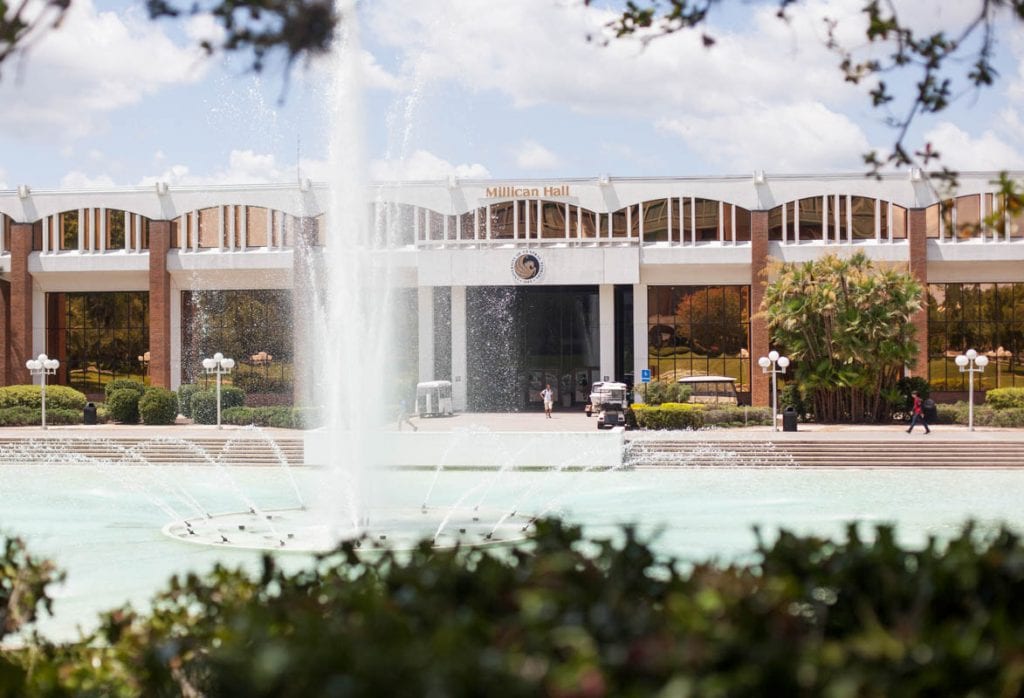
BY FACULTY EXCELLENCE
UCF Faculty Excellence has chosen 31 women to honor during Women’s History Month, which begins today.
The national observance was started in 1981 to recognize women who have shown a commitment to humanity and our planet.
At UCF, these women have helped shape the university from its beginnings until today. For more about the women, visit the Faculty Excellence page, and for the past honorees, check out the archives.
“It’s an honor to work among such amazing and accomplished women faculty,” says Jana L. Jasinski, vice provost for Faculty Excellence. “For this month, let’s remember and celebrate how this group of women are making a difference on this campus and in the community.”
The College of Sciences honorees are:
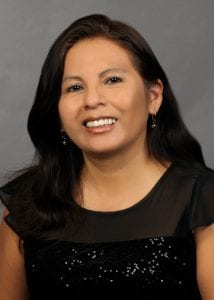
Karin Chumbimuni-Torres, Ph.D. Chemistry
Chumbimuni-Torres is a dedicated researcher and a talented educator, who strives to excel in everything she does. Since 2012, when she was appointed as an Assistant Professor at UCF, Chumbimuni-Torres has mentored and supervised the research projects of 25 undergraduate students and five graduate students at UCF, as well as six international visiting students and scholars. The students under her leadership served as co-authors of more than 10 peer-reviewed publications in leading scientific journals, and presented their research at local, national and international conferences. The students received numerous awards for their research contribution under the supervision of Chumbimuni-Torres. Chumbimuni-Torres has delivered nine invited talks both on her research and teaching and mentoring approaches. For her outstanding research, scholarly, and creative activities, she was recognized with the UCF Research Incentive Award (RIA) in 2018. Chumbimuni-Torres was a 2017-18 Teaching Incentive Program Award recipient. She received an Award for Excellence in Undergraduate Teaching by UCF College of Science in 2017. She was also recognized as an Outstanding Four-Year College Teacher by the Orlando Section of the American Chemical Society in 2015. Chumbimuni-Torres has provided service to community by organizing and running outreach programs at Timber Creek High School and Seminole County Public Libraries, service to the Chemistry Department, UCF by judging at Showcases of Undergraduate Research Excellence and Graduate Research Forum, and mentoring LEARN, EXCELL and Compass students, and service to profession by serving as an ad-hoc reviewer for scientific journals and grant panels.
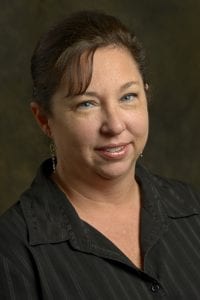 Karen Cox, M.A., Psychology
Karen Cox, M.A., Psychology
Karen Cox is the director of the Psychology Advising Center, which directly interacts with and serves the almost 4,000 undergraduate majors and nearly 1,000 minors in Psychology. In this role, Cox is often not only the first contact for our students in the department during orientation, but also one of the last ones as they graduate from UCF.
In the Advising Center, the personal touch of Cox and her staff is what has kept many students who either were academically at risk or experienced other challenges from leaving the university without completing their degree. In particular, her input on student-related issues and concerns, as well as her personal intervention in a number of time-critical and important events have had a very positive impact on the department.
In addition to her direct work with students, which also includes managing the undergraduate teacher assistant program, Cox is a tireless advocate for student success at UCF. Cox is on numerous committees, boards, and task forces within UCF and in the advising community, including from SDES and Experiential Learning, and she frequently interacts with our local partners by holding orientation and coordination meetings at Valencia, SCC, and elsewhere. Finally, Karen has consistently provided other services to the department and the college through membership on other committees and by volunteering for department events.
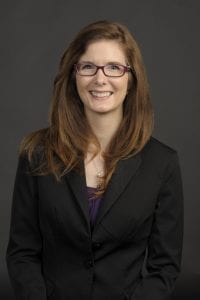 Erin Saitta, Ph.D., Chemistry
Erin Saitta, Ph.D., Chemistry
Erin Saitta has been dedicated to the improvement of teaching and learning at UCF for over a decade. On a daily basis, she combines her background in education and her passion for chemistry to teach and mentor chemistry students, support faculty in implementing evidence-based teaching practices in their own classrooms, and study how graduate students develop as chemistry instructors. Through these three avenues, Saitta has a significant impact on the teaching and learning experiences of undergraduate students, graduate students, and faculty members across campus.
Saitta’s first passion is teaching. She led the transformation of the General Chemistry laboratory course from a verification-style “cookbook” lab course to an inquiry-based course in which students are presented with a key question they are asked to answer using what they have learned in the lecture courses. This pedagogy is widely recognized as one that results in high student performance and retention of concepts. In addition to laboratory courses, Saitta teaches General Chemistry lecture courses that are commonly large enrollment. She applies her knowledge of effective teaching practices to promote the success of all her students in these difficult gateway courses.
After graduating with her Ph.D. in chemistry from UCF, Saitta served as a post-doctoral scholar and then associate director in the Faculty Center for Teaching and Learning. In these roles, she developed many programs and built relationships with many faculty that improved teaching practices across the UCF community. Although her academic background is in chemistry, she was easily able to engage with and offer support to faculty across disciplines. When she moved back to the Department of Chemistry, she continued to offer faculty development. Most recently she acted as Faculty Fellow and co-facilitator of the Digital Learning STEM Institute, which she helped develop to support the Division of Digital Learning’s Course Redesign Initiative.
Saitta’s dedication to faculty development as well as teaching chemistry have led her to her research interest: professional development for chemistry graduate students. She is currently conducting a study of graduate students’ teaching practices after training using TeachLivE, a mixed-reality teaching environment that gives teachers an opportunity to practice conducting lessons before they enter a classroom. Besides improving the teaching of potential future chemistry faculty, she is influencing the success of UCF undergraduate students taking courses with the graduate students who use TeachLivE.
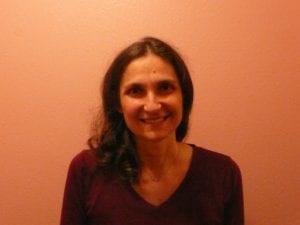
Barbara Sgouraki Kinsey, Ph.D., Political Science
“Barbara Sgouraki Kinsey is a great, enthusiast, and caring mentor. Additionally, she is a brilliant, successful, and experienced instructor. Those six adjectives are able to explain only in part the kind of support she is able to provide students with.
Let me explain this further. As an international student, I have faced some challenges when settling down in a new city and while getting familiar with a U.S. university but Prof. Kinsey has always supported me by listening to my questions or concerns, by providing advice and suggestions, by directing me to the right resources and/or people. Not only, she has been of great help in exploring UCF resources, funding opportunities, conferences participation, and so on. She has been of great help when preparing workshop/conferences applications. In addition, the class she haught during the Fall semester has been the one I enjoyed the most: clear explanations, structured assignments, support while working on the research project, and great brainstorming about potential topics to investigate.
All of that, coupled with a great communication responsiveness, caring attitude, and demonstration of outstanding expertise in the field she teaches and researches.
I do believe Prof. Kinsey deserves this award because of her real commitment to teaching. She really takes her job from a holistic perspective: she does consider very important not only the class setting itself, but mostly, how students approach their academic path. Last but not least, she is a great example of inclusiveness, respect and support for and to diversity, and the way in which she is able to help international students navigating the academic career is a particular aspect to take into consideration.
Moreover, Prof. Kinsey is the Assistant Chair of the Department of Political Science and I do see her covering this role very well because of the attention to both graduate students and colleagues. She has also worked for organizing the Staff Appreciation Luncheon the last December in order to recognize the efforts that the administrative employee did during the year. I believe that a leader, or more in general, someone in her position should do that and do not take for granted what the administration does when supporting – in this case – our Department. So Prof. Kinsey has demonstrated her dedication to her position and appreciation to each one works – no matter the level of the position. For me, that I grew up in a middle-class family, it meant humanity and respect for others.
I really do not find any additional words to communicate why Prof. Kinsey should be honored. She is a point of reference in the department and to me – personally – has been the only one when start getting familiar with this new academic system.”
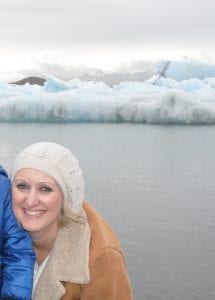 Megan Sherod, Ph.D., Psychology
Megan Sherod, Ph.D., Psychology
Dr. Sherod currently holds the rank of Clinical Associate Professor in the Department of Psychology. Dr. Sherod previously served as the Director of the Psychology Clinic, where she also was working with Student to address the impact of traumatic brain injuries on athletes, and she is now teaching in the Clinical Psychology M.A. program at the Sanford/Lake Mary campus.
In addition to her teaching, mentoring, and clinical duties, Sherod has also been instrumental in creating the UCF Adaptive Community. This idea was pioneered by Sherod and has become an interdisciplinary effort between her and our colleagues in Communication Sciences and Disorders, Physical Therapy, Athletics, Recreation & Wellness, Student Health Services, and Performing Arts (https://today.ucf.edu/ucf-launches-adaptive-recreational-program-neuro-atypical-community/). The goal of the UCF Adaptive Community it is to provide individuals with acquired physical and cognitive disabilities an opportunity to meet others, explore hobbies, and engage in an interdisciplinary community. (see https://sciences.ucf.edu/psychology/adaptive-community/).
Three core activities of the UCF Adaptive Community are: theatre, music, and sports. Patients from Aphasia House in Communication Sciences and Disorders, for example, participate in the creation and performance of an original theatre production as part of the Adaptive Community Theatre (see https://sciences.ucf.edu/psychology/adaptive-community/sample-page/spring2018performances/).
Similarly, individuals with cognitive disabilities are part of the Adaptive Community Choir, and recruitment is underway for three sports within the Adaptive Community Sports (Wheelchair Basketball for individuals with spinal cord injuries or acquired movement disorders; Sitting Volleyball for anyone with a neurological injury or disease; and Adaptive Softball for anyone with a neurological injury or disease). The choir and theatre group, in particular, are well subscribed and, by all accounts, have been great successes already.
Since coming to UCF in 2016, Sherod has devoted great energy and countless hours towards these activities, working at the Aphasia House and setting up the community theatre and the adaptive community choir. Her vision of providing opportunities for individuals with cognitive disabilities (and, in particular, aphasia) to express themselves creatively and actively has caught on rapidly and has also already been rewarded with funding from the UCF Quality Enhancement Plan Program through July 2019 (https://undergrad.ucf.edu/whatsnext/2017-program-innovation-awards/).
In April 2018 and November 2018, both the Adaptive Community Theater and the Adaptive Community Choir held public performances that were well attended and garnered much praise for the UCF Adaptive Community and for Aphasia House, and a lot of the credit for these successes should go to Sherod. In the words of Richard Zraick, Ph.D., professor and chair of the Department of Communication Sciences and Disorders, Sherod, “has been a wonderful collaborator and supporter of the work being done at Aphasia House. Her passion for helping people with adaptive needs is inspiring. Without (Sherod’s) vision and tireless involvement, these efforts would not have succeeded, and she deserves recognition for them.”
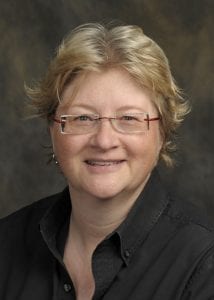
Lana Williams, Ph.D., Anthropology
“It is difficult for me to summarize all the wonderful opportunities Dr. Lana Williams has given to me and many others like me in her time within (Department of Anthropology). I returned to UCF in 2012 after a 12-year break. Within a year Dr. Williams saw potential in me, asking me to help her with some projects she was working on. This eventually led to me becoming her graduate student with enough experience to earn a full fellowship to the anthropology graduate school program at UCF. Over the last 6 years, I have watched her assist countless students in just about every area of their lives by guiding them, offering experience, or simply just listening, many of whom she does not personally advise academically. A large majority of these students are women who are concerned about their roles in academia and the field of anthropology itself due to the overwhelmingly male-dominated history of the discipline. As a marine, expert in her field, member of the LGBTQ (community), and advocate for women and mental health, Dr Williams understands what it can be like to work hard for what you want and instills that in her students. We understand the need to obtain as many skill as possible along the way in order to become invaluable to the workforce, never expecting it to be easy, but with the skills to work for what we want and deserve. She commands respect and love without ever having to show more than the strength of her character. I sincerely hope to carry on that strength to the next generation of female anthropologists.
Both Dr Williams and her wife, Dr Sandra Wheeler, also a bioarchaeologist at UCF, work with ancient remains, studying the lifestyles of past peoples. Much of the work involves the dynamic of women and children in societies including breastfeeding and weaning practices, as well as mortuary habits. They have three children of their own.”
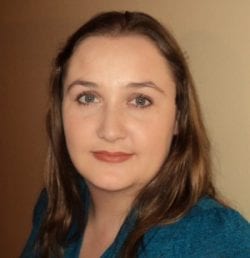 Chrysalis Wright, Ph.D., Psychology
Chrysalis Wright, Ph.D., Psychology
Chrysalis Wright teaches large lecture classes each semester, is Honors in the Major Coordinator for the department, serves on the Honors Committee of the Faculty Senate, and Directs the department’s SONA system. She has supervised more than 60 undergraduate students as part of her Media and Migration Undergraduate Research Lab, with more than 20 of these students completing a Honors in the major thesis. Research in the lab focuses on media influences on development and behavior. Her research with undergraduates has produced groundbreaking and unique findings in relation to media influences on sexual cognitions, substance use and sexual behaviors among college students, and has been published in journals such as The Howard Journal of Communications, Journal of Ethnicity in Substance Abuse, Communication Quarterly, and Sex Education. Her current research with undergraduate students focuses on fake news and misinformation, as well as racism and Islamophobia. Wright was recently invited to speak on this topic at the Communications Coordination Committee for the United Nations. Outside of UCF, Wright serves as secretary for Division 46 of the American Psychological Association (APA) (Society for Media Psychology & Technology), chairs the Division 46 Task Force on the Sexualization of Popular Music, and is Governance and Membership Representative for the Committee on Early Career Psychologists (CECP) of the APA. She is also this year’s program chair for the CECP of the APA.
